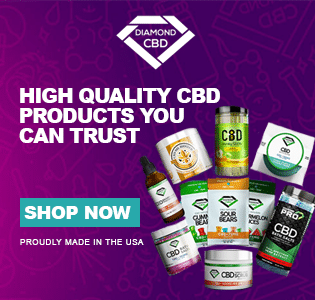Navigating the sales regulations for CBD gummies can be a complex task, especially with the evolving legal landscape surrounding CBD products. With the recent FDA approval of a CBD-based drug for epilepsy, the market for CBD-infused edibles has gained significant attention, prompting stricter regulations. Whether you are a retailer, manufacturer, or consumer, it's crucial to understand the legal status, labeling requirements, advertising restrictions, age limitations, and quality standards when it comes to CBD gummy sales. Stay ahead of the game and ensure compliance with these regulations to avoid potential setbacks and legal issues.
Key Takeaways
- CBD gummy regulations vary from state to state, so it is important to research and understand the specific laws in your state.
- Proper labeling of CBD gummies is crucial, including accurate nutritional information, ingredient list, CBD content, and allergen warnings.
- Advertising CBD gummies must comply with FDA regulations, avoiding unsubstantiated health claims and focusing on general wellness benefits.
- Age restrictions for CBD gummy sales should be followed, implementing age verification processes and educating customers about the legal consequences of purchasing for minors.
- Compliance with testing and quality standards ensures the safety and quality of CBD gummies, including quality control and potency testing.
Legal Status of CBD Gummies
You can legally purchase and consume CBD gummies in many states across the United States, but it's important to be aware of the specific regulations in your area. The legality of CBD gummies varies from state to state due to differing regulations. At the federal level, CBD derived from hemp containing less than 0.3% THC is legal, as per the 2018 Farm Bill. However, individual states have their own laws regarding the sale and consumption of CBD products, including gummies.
State regulations play a crucial role in determining the legal status of CBD gummies. While some states have fully legalized the sale and use of all CBD products, others have restrictions in place, such as limitations on THC content or requirements for CBD product labeling. It's essential to research and understand the specific laws in your state to ensure compliance.
Understanding the CBD gummy legality in your state is vital for both consumers and retailers. For consumers, knowing the legal status ensures that they are not inadvertently breaking the law. For retailers, it is essential to adhere to state regulations to avoid potential legal repercussions. Therefore, staying informed about state regulations regarding CBD gummies is paramount for all parties involved.
Labeling Requirements for CBD Gummies
Labeling requirements for CBD gummies vary by state and are an essential aspect of compliance for retailers and manufacturers. When it comes to selling CBD gummies, providing accurate and clear labeling is crucial for ensuring consumer safety and meeting legal obligations. Here are some key components to consider when labeling your CBD gummies:
- Nutritional Information: Including a detailed breakdown of the nutritional content is essential for consumers who are conscious of their dietary intake. This information typically includes serving size, calories, fat content, sugar content, and any other relevant nutritional data.
- Ingredient List: Clearly listing all the ingredients used in the CBD gummies is imperative. This information allows consumers to make informed decisions about what they are consuming and helps individuals with specific dietary restrictions or allergies to avoid potential health risks.
- CBD Content: Accurately stating the amount of CBD in each gummy is vital for transparency and consumer trust. This information helps consumers understand the potency of the product and enables them to manage their CBD intake effectively.
- Allergen Warnings: If the CBD gummies contain common allergens such as nuts, soy, or gluten, it's important to clearly highlight these ingredients and provide allergen warnings to ensure consumer safety and compliance with labeling regulations.
Advertising Restrictions for CBD Gummies
Navigating the advertising landscape for CBD gummies requires a comprehensive understanding of the regulatory constraints and guidelines in place to ensure compliance and responsible promotion. When it comes to marketing strategies, it's important to note that the FDA has strict regulations regarding the advertising of CBD products, including gummies. Companies must refrain from making any unsubstantiated health claims or marketing their products as a cure for specific ailments without scientific evidence to support such assertions. Therefore, it's crucial to develop marketing materials that focus on the general wellness benefits of CBD rather than making specific health claims.
Moreover, consumer education should be a key component of any advertising efforts for CBD gummies. This involves providing accurate and transparent information about the product, its ingredients, and its potential effects. Any marketing materials should also include clear disclaimers regarding the lack of FDA approval for CBD products and the importance of consulting with a healthcare professional before use. By prioritizing consumer education, companies can build trust with their target audience and promote responsible consumption of CBD gummies without overstepping regulatory boundaries.
Age Restrictions for CBD Gummy Sales
When selling CBD gummies, it is important to adhere to age restrictions in compliance with local laws and regulations to ensure responsible distribution. Retail restrictions play a crucial role in governing the sale of CBD gummies to minors. As a seller, it is your responsibility to familiarize yourself with the specific age restrictions in your area. Here are some important points to consider:
- Legal Age: Familiarize yourself with the legal age for purchasing CBD products in your state or country.
- Verification Process: Implement a stringent age verification process for online sales to ensure that customers meet the required age criteria before purchasing CBD gummies.
- In-Store Signage: Clearly display the age restriction policy at your retail location to inform customers about the legal purchasing age for CBD gummies.
- Consumer Education: Educate your customers about the importance of adhering to age restrictions and the potential legal consequences of purchasing CBD gummies for minors.
Compliance With CBD Gummy Testing and Quality Standards
To ensure compliance with CBD gummy testing and quality standards, it is imperative to integrate stringent age verification processes into your sales practices, thereby emphasizing the importance of responsible distribution and consumer safety. Quality control and potency testing are essential aspects of meeting these standards. Quality control involves ensuring that the CBD gummies are free from contaminants, have accurate CBD content, and meet safety standards. Potency testing verifies the concentration of CBD and other cannabinoids in the product. By implementing rigorous quality control and potency testing, you can ensure that the CBD gummies you are selling meet the highest standards for safety and quality.
| Quality Control | Potency Testing |
|---|---|
| Ensures product is free from contaminants | Verifies CBD and cannabinoid concentration |
| Confirms accurate CBD content | Ensures consistency in potency |
| Meets safety standards | Validates label claims |
| Guarantees product quality | Ensures product efficacy |
Frequently Asked Questions
Can CBD Gummies Be Marketed as a Cure for Specific Health Conditions?
You can't market CBD gummies as a cure for specific health conditions. CBD gummy health claims are restricted by advertising regulations. It's important to adhere to these rules to ensure compliance and avoid potential legal consequences.
Are There Any Restrictions on the Flavors or Colors That Can Be Used in CBD Gummies?
When it comes to CBD gummies, flavor restrictions and color limitations may apply. It's essential to understand the specific regulations in your area to ensure compliance with any restrictions on flavors or colors used in CBD gummies.
Can CBD Gummies Be Sold in Combination With Other Non-CBD Supplements or Ingredients?
So, you're wondering about mixing ingredients and supplement combinations with CBD gummies? Well, it's important to carefully navigate the regulations surrounding this. Always ensure compliance with local laws and regulations before combining different supplements with CBD gummies.
Are There Any Limitations on the Packaging or Design of CBD Gummies?
When selling CBD gummies, make sure to comply with packaging regulations and design restrictions. Pay attention to labeling requirements and child-resistant packaging. Any claims or images on the packaging must also adhere to FDA guidelines.
What Are the Regulations Regarding the Online Sale and Shipping of CBD Gummies to Different States?
Want to know about regulations for online sales and interstate shipping of CBD gummies? Ensure compliance with age restrictions, advertising guidelines, and state laws. Check each state's specific regulations before shipping products across state lines.





